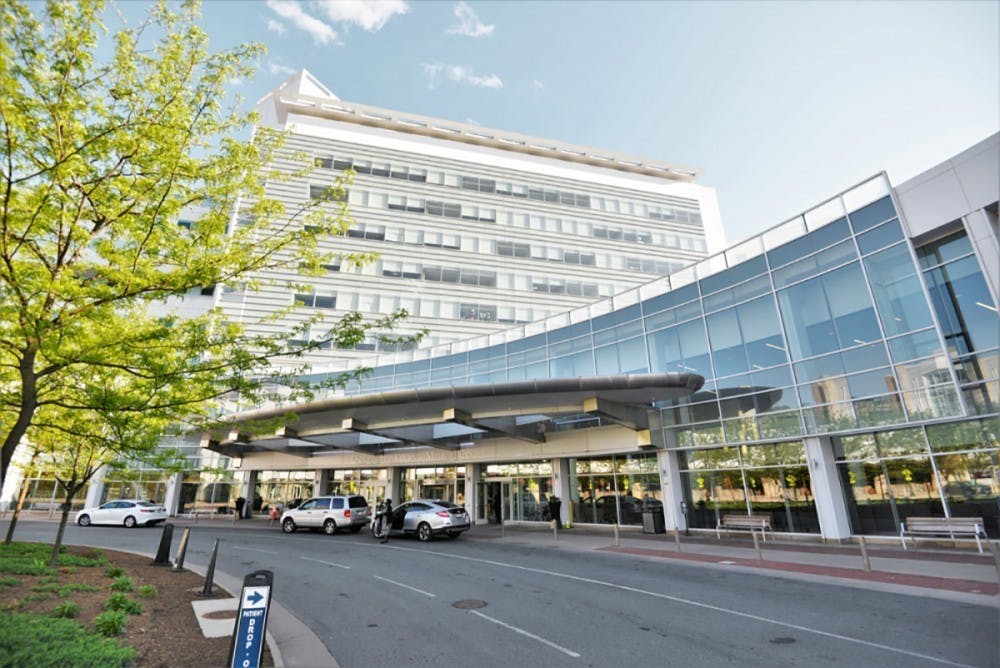The University of Virginia Medical Center faced considerable backlash in recent years for filing over 30,000 lawsuits against former patients for outstanding medical expenses from 2012 to 2018. In response, U.Va. Health announced new alterations of billing policies and practices April 19.
An investigation conducted by Kaiser Health News in 2019 revealed that over the course of six years, ending in 2018, U.Va. Health filed over 36,000 lawsuits against patients, seeking over $106 million. Many of the families with outstanding medical bills had their wages and/or bank accounts seized and liens placed on homes and property, forcing some families into bankruptcy.
The new changes are part of a series of updates to billing policies since the initial controversy. In Sept. 2019, U.Va. Health announced that it would increase financial assistance, offer more discounts to uninsured patients and “reduce their reliance on the legal system.” Bills would be written off entirely for individuals at or below the federal poverty level who possessed less than $50,000 in assets. Lawsuits would only be filed in cases involving over $1,000 and individuals who make more than 400 percent of the federal poverty level. The policies went into effect Jan. 1, 2020.
Additionally, the health system established a 16-person advisory council to provide U.Va. Health leaders recommendations on billing and collection policies.
According to the recent billing policies, U.Va. Health is creating a special Ombudsman's office that will review individual cases to help patients and their families better understand their payment options and to help reach a fair payment solution as needed.
These new policies additionally expand the financial aid opportunities in case of a medical emergency. Patients who receive emergency care may qualify for a reduced bill if they don't have insurance or other ways of paying, their care costs more than $10,000 or if the specific type of care given is eligible for this type of aid. Based on these policies, if the proper requirements are met, patients and their families will not owe more than 25 percent of family income and assets. This policy will help ensure public access to emergency services.
U.Va. Health will also release all liens and judgments for patients who are at or below 400 percent of the federal poverty level. For example, a household of five individuals with an annual income less than or equal to $124,160 will be released from all liens and judgments. Medical financial aid at U.Va. Health is determined by a sliding scale which considers the following factors — insurance, assets, income and household size.
According to the U.Va. Health Financial Assistance Policy, Patient Financial Services will assist uninsured and underinsured patients free of charge in obtaining governmental and non-governmental financial assistance to help cover their necessary medical care expenses.
The 36,000 lawsuits filed by the health system included some for amounts as little as $13.91 and as much as $1 million. In addition, U.Va. Health garnished paychecks from former patients in order to pay for outstanding medical bills. Many of the paychecks seized came from lower-pay employers such as Walmart.
The health system also seized over $22 million in state tax refunds owed to patients with outstanding bills. Each year, roughly 100 of these lawsuits were against U.Va. Health employees, which often included property liens that sprawled across the country as far south as Georgia.
During this time, U.Va. Health had one of the most restrictive eligibility guidelines for patient financial assistance of any major hospital system in Virginia. This was one major contributing factor to the enormous quantity of lawsuits filed against former patients with unpaid bills. Most of these families had no way to finance their medical expenses, forcing the University to take action and seize payments and property. KHN reporter Jay Hancock said that these aggressive practices resulted in $12 million of revenue per year.
The new billing policies and practices were announced with the hope of providing more coverage for medical expenses through the health system.
Eric Swensen, public information officer for U.Va. Health commented on these changes, noting U.Va. Health’s commitment to providing high-quality, compassionate care for all community members.
“U.Va. Health conducted an extensive national exploration and comparison of billing and collection practices at other academic medical centers and health systems to help inform our new policies,” Swensen said. “U.Va. Health is committed to fair billing and collections practices as well as helping patients proactively access financial resources to help cover the cost of their medically necessary care.”
U.Va. Health offers free and confidential financial aid services that can help patients understand their medical bill, find out what is covered by insurance, apply for financial aid as needed and set up a payment plan. Questions from staff members or patients regarding potential eligibility for financial assistance or pending applications should be directed to the Financial Verification Customer Service Unit at 866-320-9659 or 434-924-8718 or via email at financialassistance@virginia.edu.







